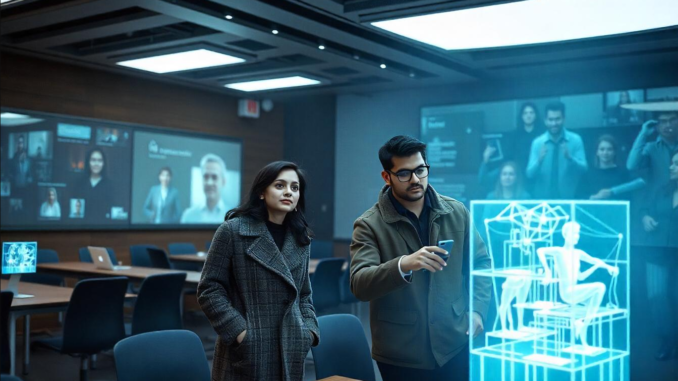
Reimagining Education: How Modern Classrooms Are Shaping Future Innovators
Education is undergoing a quiet revolution. Gone are the days when classrooms were defined by chalkboards, rows of desks, and a one-size-fits-all curriculum. Today, schools across the globe are embracing innovative approaches that not only enhance learning but also prepare students for a world that demands creativity, collaboration, and adaptability. This reimagining of education is giving rise to modern classrooms designed to shape the innovators of tomorrow.
Technology as a Catalyst for Change
One of the most visible signs of this transformation is the integration of technology. Interactive whiteboards, tablets, learning apps, and virtual reality (VR) tools are now common in many schools. These tools bring subjects to life, enabling students to explore historical events in 3D, conduct virtual science experiments, or collaborate on coding projects with peers across the world.
More importantly, technology allows for personalized learning experiences. Artificial intelligence (AI) powered platforms can assess a student’s strengths and weaknesses in real-time and adapt lessons accordingly. This individualized approach ensures that no learner is left behind and that gifted students are continually challenged.
Focus on Critical Thinking and Problem Solving
Modern education is moving beyond rote memorization. The focus has shifted to developing critical thinking, problem-solving, and analytical skills. Project-based learning, for example, encourages students to tackle real-world problems through interdisciplinary collaboration. Whether it’s designing a sustainable city or creating a prototype for a new app, students are encouraged to think creatively and work as a team.
These projects often mimic real-life scenarios, helping students understand the relevance of what they’re learning. They develop not only academic skills but also soft skills such as communication, leadership, and time management—skills that are essential in any career path.
Emphasis on Collaboration Over Competition
The traditional model of ranking students against each other is slowly giving way to a culture of collaboration. Group activities, peer review sessions, and cooperative learning strategies are becoming the norm. This shift fosters a more supportive environment, where students learn to appreciate diverse perspectives and work collectively toward common goals.
This approach mirrors the modern workplace, where success often depends on effective teamwork and collaboration. By practicing these skills early, students are better prepared for future professional environments.
Cultivating a Growth Mindset
Modern classrooms are also emphasizing the importance of a growth mindset—the belief that abilities can be developed through dedication and hard work. Teachers are becoming facilitators rather than just knowledge providers, guiding students to take ownership of their learning. Mistakes are seen not as failures, but as valuable learning opportunities.
This mindset not only improves academic performance but also nurtures resilience and perseverance—qualities crucial for innovation. Students are encouraged to take risks, experiment with ideas, and learn from their failures.
Global Perspectives and Cultural Awareness
In an increasingly interconnected world, modern education is also focusing on global citizenship. Classrooms are becoming more inclusive, integrating global issues such as climate change, social justice, and cultural diversity into the curriculum. This helps students develop empathy, cultural awareness, and a sense of responsibility toward the global community.
Virtual exchange programs and international collaborations further expand students’ horizons, allowing them to interact with peers from different cultures and backgrounds. This global perspective is essential for innovators who will one day tackle worldwide challenges.
Conclusion
The modern classroom is no longer just a place to absorb information—it is a dynamic, interactive space where young minds are inspired to think differently, explore boldly, and innovate fearlessly. By embracing technology, fostering collaboration, and promoting critical thinking, today’s educators are laying the foundation for a generation of future innovators.
Reimagining education is not just about changing how we teach; it’s about transforming how students learn, think, and grow. And in doing so, we are shaping a future where innovation knows no bounds.
